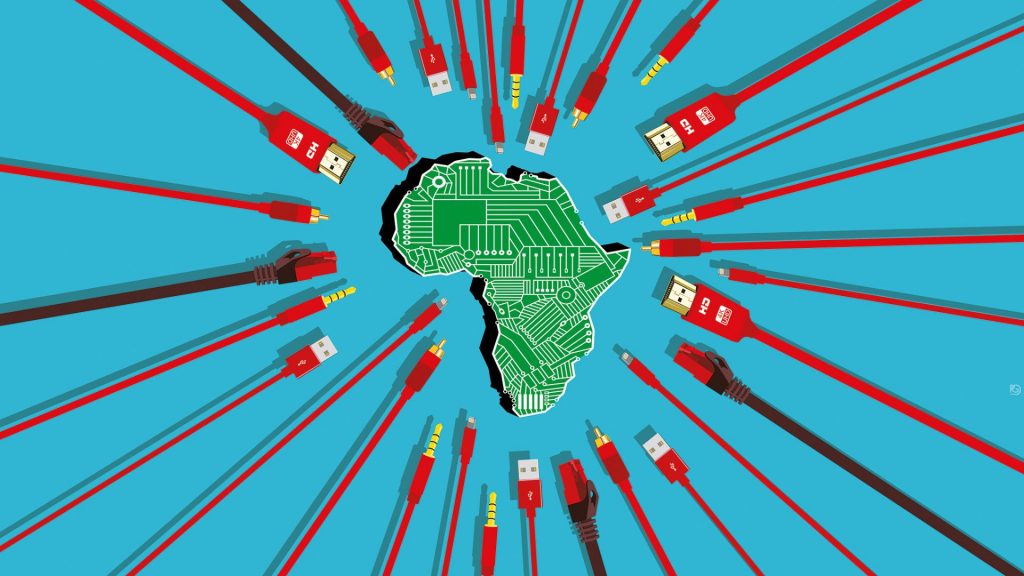In a move that signals a major leap forward in generative AI, OpenAI has quietly rolled out ChatGPT-5, its most advanced model to date….
Katapult backs 23 early-stage climate and oceans innovators

Katapult, an investment firm dedicated to nurturing early-stage, impact-driven technology start-ups, has announced its investment in 23 companies chosen from a competitive pool of 2 500 applicants worldwide. These start-ups, representing the top 1% of applications, are leading the way in the crucial ocean- and climatetech sectors, showcasing unparalleled potential and a global commitment to impact.
The selected start-ups, hailing from 13 different countries across 5 continents, emerged from a rigorous selection process. Notably, nearly 40% of these ventures are led by women founders, emphasising Katapult’s dedication to promoting gender diversity within the impact investment landscape.
Under the Katapult 2023 accelerator programme, these start-ups will embark on an intensive journey, refining their skills and knowledge in impact technology. Overseen by programme director Marcus Hølland Eikeland, it offers a meticulously crafted curriculum of educational video modules and interactive workshops.
Participants will not only gain essential skills but also access a valuable network of mentors and potential investors, positioning them for future success.
“In the Katapult 2023 accelerator programme, our selected start-ups will be equipped with practical skills and vital knowledge to enhance their impact in the ocean and climate technology sectors. Our objective is straightforward: to elevate these companies by sharpening their strategy, management, and investor readiness, positioning them robustly for future success,” stated Eikeland.
Katapult climate’s investment director, Jørn Haanæs, expressed enthusiasm for the 11 innovative companies in their portfolio, addressing critical global challenges. These ventures range from mycelium-based meat production to integrating solar energy into the energy matrix and reducing microplastics from the environment, shaping new trends in impact technology.
Jonas Skattum Svegaarden, CEO of Katapult Ocean, highlighted the 12 companies they have backed, focusing on the future of maritime and ocean technology. These start-ups are pioneering solutions, from marine transport decarbonisation to sustainable seaweed-based plastics and marine asset monitoring
“At Katapult, we are steadfast in our pursuit of catalysing tangible, impactful solutions to urgent global challenges relating to oceans and climate. It is through these investments and collaborative endeavours with pioneering companies that we are helping to build progress toward both environmental sustainability and a fairer planet,” emphasised Linn-Cecilie Linnemann, CEO of Katapult.
The start-ups selected for investment in the climatetech sector include:
- Adamo Foods: A plant-based meat producer utilising precision fermentation to offer sustainable steak and meat alternatives made from fungal mycelium.
- Cirkula: A digital platform enabling restaurants and stores to reduce food waste through a surplus food marketplace.
- Gridio: Providing solutions for smart EV charging through a consumer-facing app, integrating energy price, emissions, storage, and vehicle information.
- HERlab: Utilising AI and synthetic biology for developing efficient and scalable non-conventional yeast hosts.
- Metalchemy: Developing biodegradable and recyclable food packaging with silver nanoparticles to increase food shelf life and enhance packaging solutions.
- Over Easy Solar: Building vertical bi-facial solar panels for flat and green rooftops, ensuring easy installation and maintenance-free operation.
- Phoenix Carbon: Developing a composite recycling solvolysis process to unlock value from waste, reduce CO2 emissions, and offer cost-effective alternatives to various industries.
- Planboo: A carbon removal company connecting agriculture landowners with technology to extract carbon from the atmosphere via pyrolysis, sharing revenue through certified carbon removal credits.
- Solfium: A marketplace platform connecting customers to rooftop solar installers, facilitating clean energy adoption for large corporations.
- Sparxell: Developing bio-inspired photonics technology for sustainable pigment production using plant-based material.
- The Tyre Collective: Spearheading the capture and monitoring of tyre wear (microplastics) to accelerate the shift towards true zero-emission mobility.
In the ocean-tech sector, the start-ups receiving investment are:
- Pascal Technologies: Accelerating greener maritime propulsion through air lubrication technology, enhancing energy efficiency and range of electric and alternative fuel motors.
- Hullbot: Revolutionising marine hull cleaning with cost-effective, eco-friendly, fully autonomous underwater drones.
- Mocean Energy: Leading ocean wave energy adoption with durable, scalable wave energy converters, supplementing offshore energy projects and serving as standalone resources for remote communities.
- Triton Anchor: Providing efficient, environmentally friendly anchoring solutions for floating wind and offshore renewable energy projects.
- Syrenna: Using subsea robotic solutions and AI for ocean data collection, enabling greater restoration and conservation finance in the future.
- Coral Vita: Pioneering profitable coral farming to restore invaluable reef systems threatened by climate change and eutrophication.
- Sway: Scaling next-generation packaging made from seaweed-derived bioplastics, compatible with existing plastic manufacturing machinery.
- WSense: Enabling the Internet of Underwater Things (ioUt) with ‘Subsea Wifi,’ bringing offshore infrastructure online and improving versatility.
- Gigablue: Combating global warming through enhanced ocean fertilisation technology for carbon dioxide removal.
- Vycarb: Developing modular autonomous systems for precise carbon dioxide measurement and sequestration in water via alkalinity enhancement.
- Newfish: Unlocking microalgae as a primary source of protein through proprietary fermentation technology, promoting sustainable nutrition.
- ICODOS: De-fossilising maritime shipping and other industries via scalable, low-cost e-methanol production utilising a hybrid, one-step process for carbon dioxide capture and methane synthesis.
READ NEXT: MEST Africa Challenge: $50k investment, global exposure

